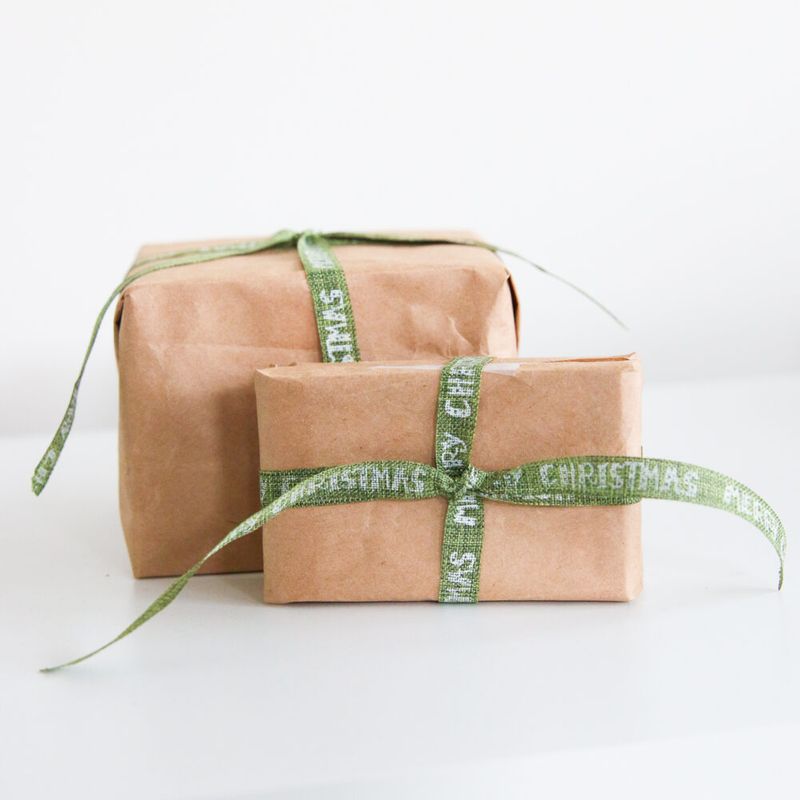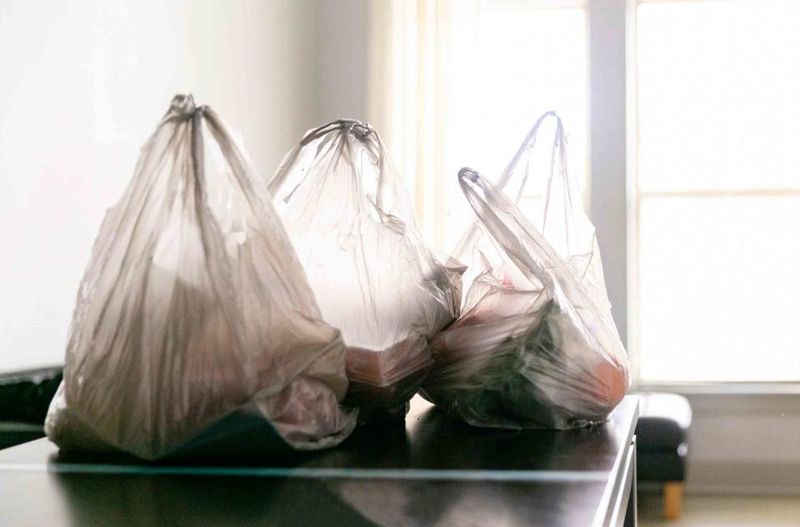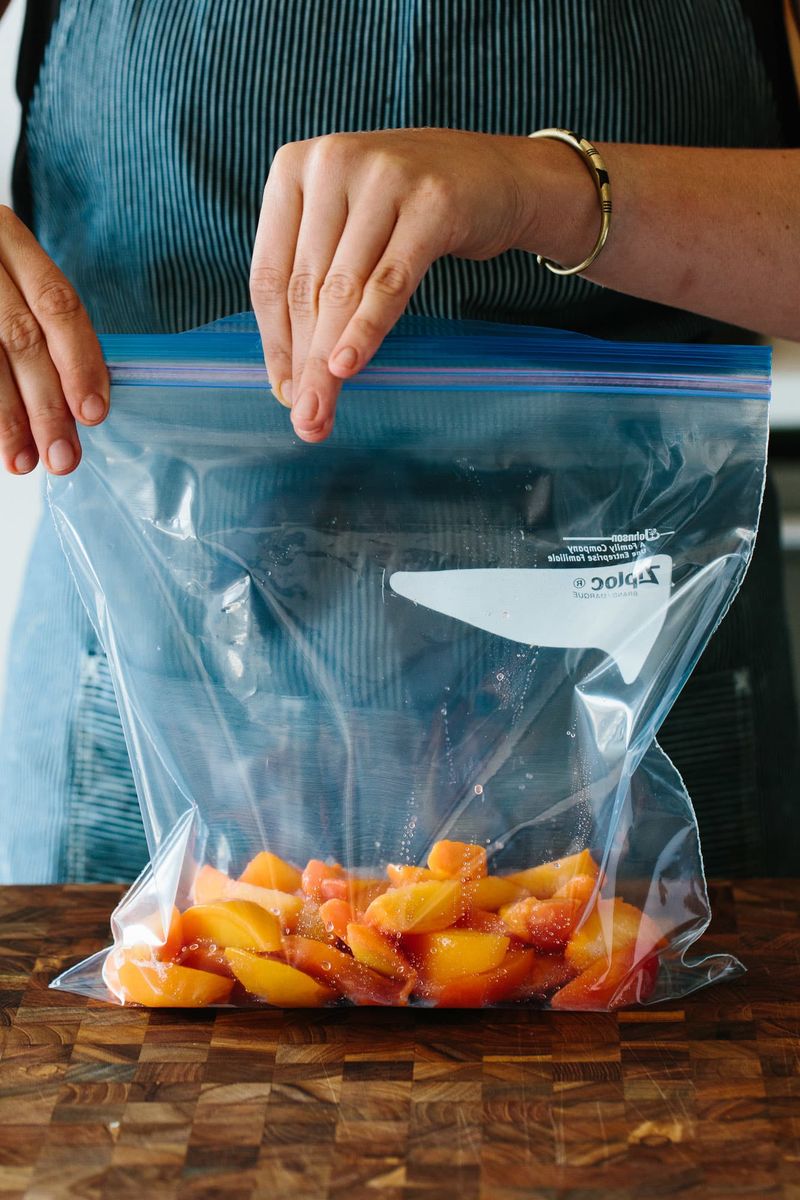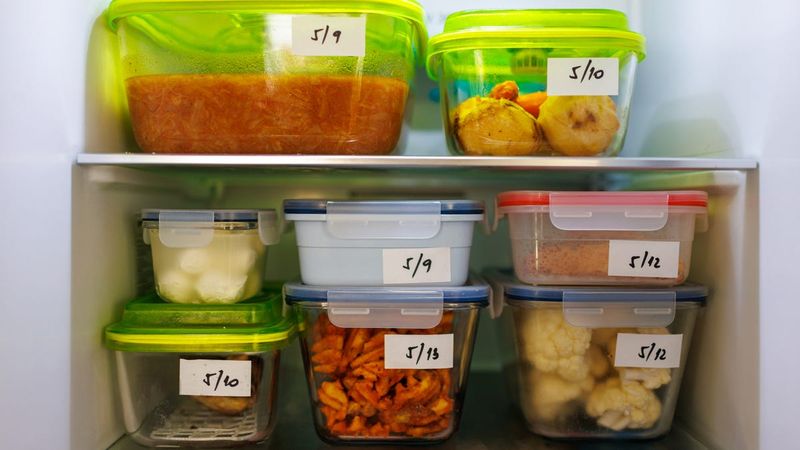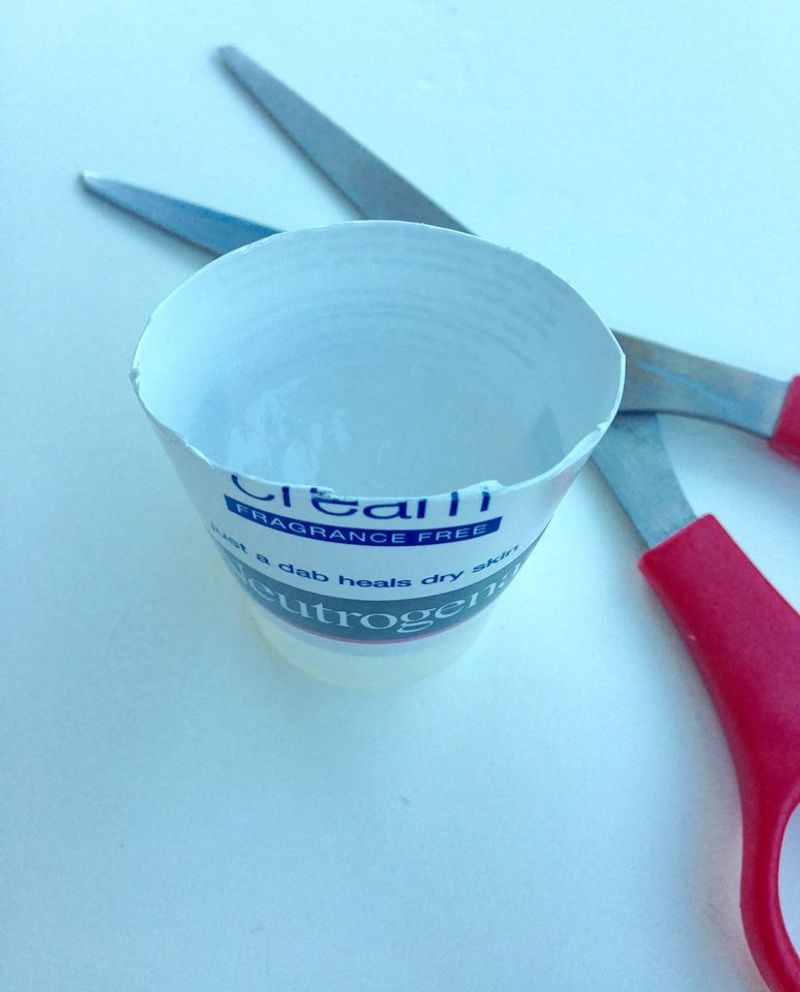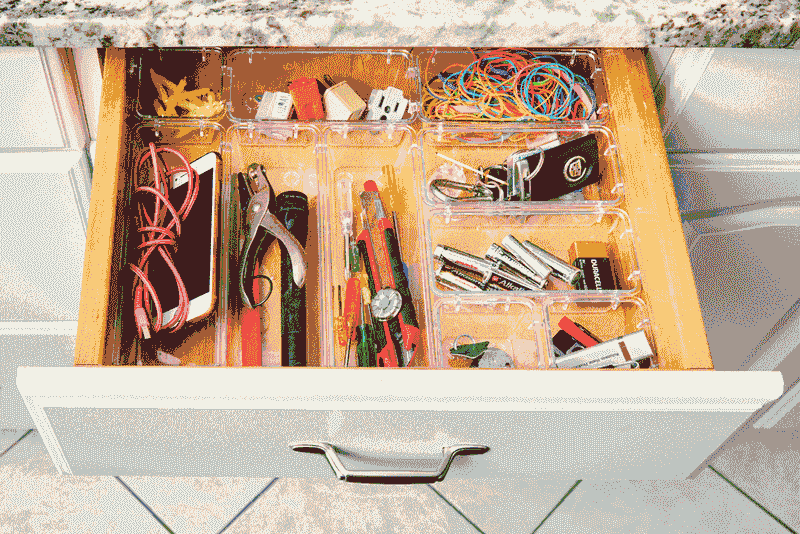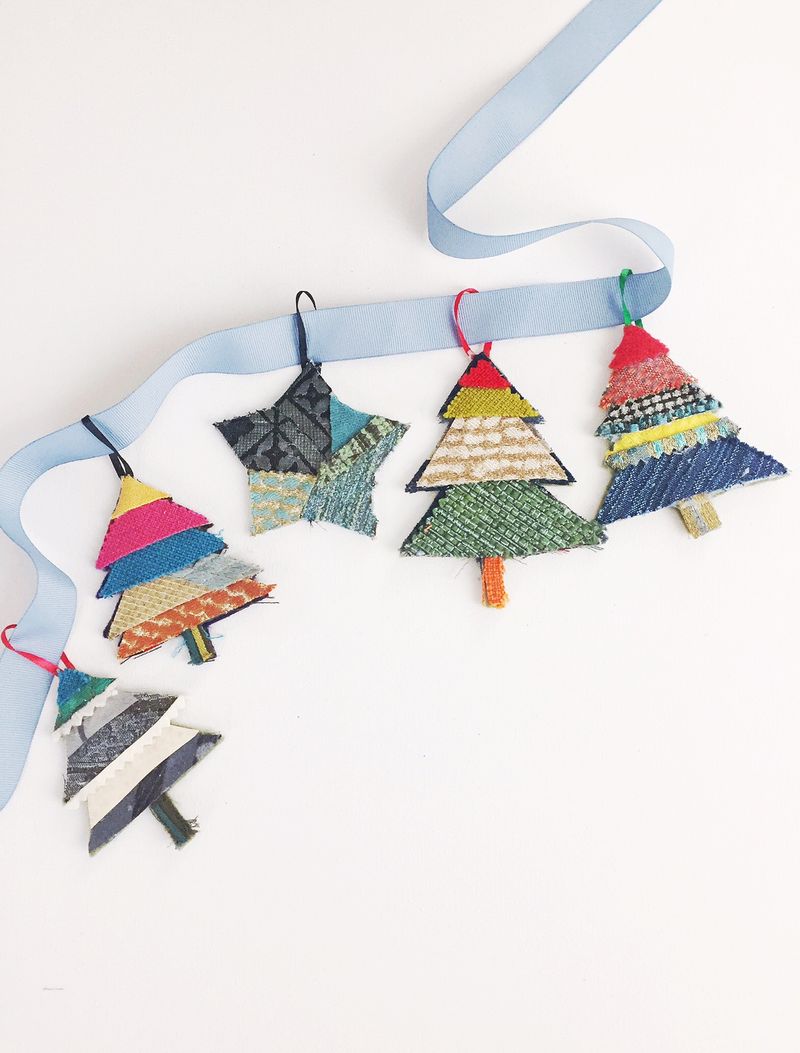Growing up with frugal parents often means learning the art of stretching every penny, repurposing nearly everything, and finding value where others might not.
These habits, ingrained from an early age, shape behaviors that might seem unusual to the uninitiated. Yet, each quirky practice carries a wealth of wisdom, humor, and practicality.
Explore these 17 behaviors that those raised by frugal parents know all too well, and discover the charm and logic behind each seemingly bizarre habit.
1. Reusing wrapping paper (carefully)
Opening a gift isn’t just about the joy of receiving; for some, it’s also about saving the paper for another day. This practice requires the delicate skill of unwrapping with precision, ensuring every inch of paper remains intact. It’s an art passed down through generations, transforming each piece of wrapping into a reusable canvas. This quirky habit reflects an appreciation for beauty and waste reduction.
In a world of single-use items, it stands as a testament to creative conservation. By reusing wrapping paper, the frugally-minded add a personal touch to gifts that carry both sentiment and sustainability. Did you know? Wrapping paper dates back to the 2nd century BC in China!
2. Keeping a stash of plastic grocery bags “just in case”
The humble plastic grocery bag, often crumpled and discarded, holds a special place in frugal households. These bags are tucked away in drawers and cupboards, ready for any unexpected need. Whether lining trash bins, carrying lunches, or storing odd items, they transform from waste to utility. It’s a practice that speaks to both environmental awareness and practicality.
By reusing what others throw away, a frugal upbringing instills a sense of preparedness. Each bag saved is a small victory against unnecessary waste, a reminder that simplicity can be powerful. Did you know? The plastic bag was invented in the 1960s as an alternative to paper!
3. Washing Ziploc bags to reuse
In households where frugality reigns, Ziploc bags are never thrown away after a single use. Instead, they’re carefully washed, dried, and stored for future meals or snacks. This practice might seem tedious to some, but it’s a daily ritual that underscores the importance of mindful consumption. Each washed bag tells a story of resourceful living, turning disposables into durables.
The meticulous care taken to preserve these bags is a nod to sustainable practices that reduce waste and save money. It’s a testament to the ingenuity of those who find worth in every item, no matter how small. Fun fact: Ziploc bags were introduced in 1968!
4. Refusing to throw out “perfectly good” leftovers
For those raised frugally, throwing away food is unthinkable. Leftovers are cherished, carefully stored, and often become the foundation for future meals. This practice not only reduces food waste but also encourages culinary creativity, as leftovers are transformed into new and exciting dishes. It’s a way of life that values every morsel, teaching lessons of gratitude and resourcefulness.
In a time where food waste is a growing concern, this habit stands as a beacon of mindful living. By refusing to discard “perfectly good” leftovers, frugal individuals champion sustainability and culinary innovation. Did you know? The average American family throws away around 20 pounds of food per person each month!
5. Cutting open tubes to get the last bit
Every drop counts when raised by frugal parents. Tubes of toothpaste, lotion, or even condiments are sliced open to extract every usable bit. It’s a habit that speaks to a philosophy of not wasting anything, where every scrap has value. This practice might appear excessive to some, but it’s a demonstration of thriftiness that turns the ordinary into the extraordinary.
By making the most of every purchase, frugally-minded individuals extend the life of products, teaching an important lesson in conservation. This quirky habit reminds us that small acts of saving can lead to significant impacts. Did you know? This practice often saves up to 10% of a product!
6. Owning a junk drawer that’s 90% rubber bands
In many frugal homes, the junk drawer is a hallowed space, with rubber bands making up the bulk of its contents. These stretchy loops are saved from various packages and repurposed for countless uses, from bundling pens to securing snack bags. This collection isn’t just about utility; it’s a testament to the principle of never throwing away something potentially useful.
Owning such a drawer is like having a toolkit for life’s little unexpected challenges. It’s a quirky yet practical way to keep things organized, demonstrating how even the humblest items can find a purpose. Did you know? The rubber band was patented in 1845!
7. Using old T-shirts as cleaning cloths
In the philosophy of “waste not, want not,” old T-shirts never head to the trash. Instead, they’re transformed into cleaning cloths, imbued with a second life. This practice reflects a frugal mindset that values utility over disposability, finding new purposes for old items. The softness of worn fabric makes them perfect for dusting and wiping, turning cleaning into an eco-friendly endeavor.
It’s a charming ritual that keeps memories alive while promoting sustainability. By repurposing clothing, frugally-minded individuals create a connection between past and present, turning cleaning into a meaningful act. Did you know? Cotton T-shirts have been around since the late 19th century!
8. Watering down soap to make it last
In a frugal household, even soap gets stretched to its limits. A splash of water added to a nearly empty bottle is all it takes to extend its life. This practice might seem trivial, yet it encapsulates a philosophy of maximizing resources. Each diluted pump becomes a testament to creativity and conservation.
It’s a lesson in making the most of what you have, often leading to innovative solutions that defy wastefulness. By watering down soap, the frugally-minded demonstrate a commitment to mindful consumption, finding satisfaction in small savings. Did you know? This habit often doubles the usage of a soap bottle!
9. Waiting for sales even if it’s urgent
In the world of frugal living, patience is indeed a virtue. Even urgent purchases are often delayed until a sale appears, a strategy that requires discipline and foresight. This habit transforms shopping into a strategic endeavor, where timing is everything. It’s not just about saving money; it’s about mastering the art of value hunting.
Waiting for sales teaches a mindset of discernment and control, turning the ordinary into an opportunity for triumph. This practice is a nod to the wisdom of delayed gratification, where the reward is as much about the savings as it is about the thrill of the hunt. Did you know? The first recorded sale event took place in 1865!
10. Keeping furniture way past its prime
In a frugal household, furniture is more than just decor; it’s a lifelong companion. Even when pieces show signs of wear, they remain cherished members of the home, lovingly maintained and repaired. This practice reflects a deep-seated belief in longevity and care, where aesthetics take a back seat to functionality. It’s a wholesome reminder that age and wear don’t diminish value.
By keeping furniture past its prime, frugal individuals celebrate the stories and memories embedded in each piece. It’s a charming homage to sustainability, where old becomes timeless, and every scratch tells a tale. Did you know? Antique furniture is defined as being over 100 years old!
11. Saving every box “for storage”
Boxes, often discarded after purchase, become precious commodities in the frugal home. Each box is saved and repurposed for storage, moving, or organizing odds and ends. This practice embodies a mindset of anticipation and readiness, where even packaging finds a second life. It’s a quirky yet practical habit that turns clutter into utility.
By saving boxes, frugal individuals create a system of organization that adapts to life’s ever-changing demands. This approach not only reduces waste but also promotes creativity and resourcefulness. Did you know? Cardboard was invented in the early 19th century and revolutionized packaging!
12. Turning off lights the second you leave a room
In a frugal household, light switches are like portals to savings. The moment someone leaves a room, off goes the light. It’s a habit that might seem obsessive, yet it encapsulates a deep understanding of energy conservation. This practice not only reduces electricity bills but also fosters an awareness of consumption.
It’s a small act with a significant impact, teaching discipline and mindfulness. By turning off lights diligently, frugal individuals illuminate the path to responsible living, where every flick of the switch is a step toward sustainability. Did you know? Lighting accounts for about 15% of home electricity use!
13. Making holiday decorations out of scraps
For those raised with frugality, holiday decorations are a canvas for creativity. Scraps of fabric, paper, and other materials become the building blocks for festive adornments. This practice turns waste into wonder, where each decoration is a unique expression of craft and imagination. It’s a joyful tradition that celebrates both resourcefulness and the spirit of the season.
By making decorations from scraps, frugal individuals foster a sense of accomplishment and pride, turning holidays into a celebration of ingenuity. This charming habit teaches that beauty and joy can be found in the simplest of things. Did you know? The tradition of decorating homes for holidays dates back to ancient times!
14. Using coupon logic as a lifestyle
In the realm of frugality, coupons are more than discounts; they’re a way of life. This practice involves meticulous planning, where each purchase is strategized to maximize savings. It’s a skill that requires diligence and insight, transforming shopping into a rewarding challenge. By using coupons, frugal individuals embrace a lifestyle of thoughtful consumption, where every deal is a victory.
This approach not only saves money but also instills a sense of empowerment and control. It’s a playful dance with the world of commerce, where savvy shoppers turn the ordinary into the extraordinary. Did you know? The first coupon was created by Coca-Cola in 1887!
15. Saying “we have food at home” like a mantra
In frugal households, dining out is rare. The phrase “we have food at home” becomes a mantra, a reminder of the value found in home-cooked meals. This practice champions the joy of cooking and the satisfaction of nourishing one’s family with love and care. It’s a philosophy that turns the kitchen into a hub of creativity and connection.
By choosing home over restaurants, frugal individuals cultivate a culinary culture that celebrates simplicity and togetherness. This habit not only saves money but strengthens family bonds, teaching the true essence of contentment. Did you know? Home-cooked meals are often healthier and more affordable than dining out!
16. Being allergic to wasting anything
In the world of frugality, waste is the ultimate adversary. This mindset manifests in every facet of life, where nothing is ever truly discarded without consideration. From recycling to composting, each action is a deliberate choice to minimize one’s footprint. This practice is more than just an eco-friendly endeavor; it’s a way of living that values every resource.
By being “allergic” to wasting, frugal individuals embrace a philosophy of mindfulness and appreciation. Each effort to reduce waste is a step towards a more sustainable future, where every decision counts. Did you know? Composting can reduce household waste by about 30%!


